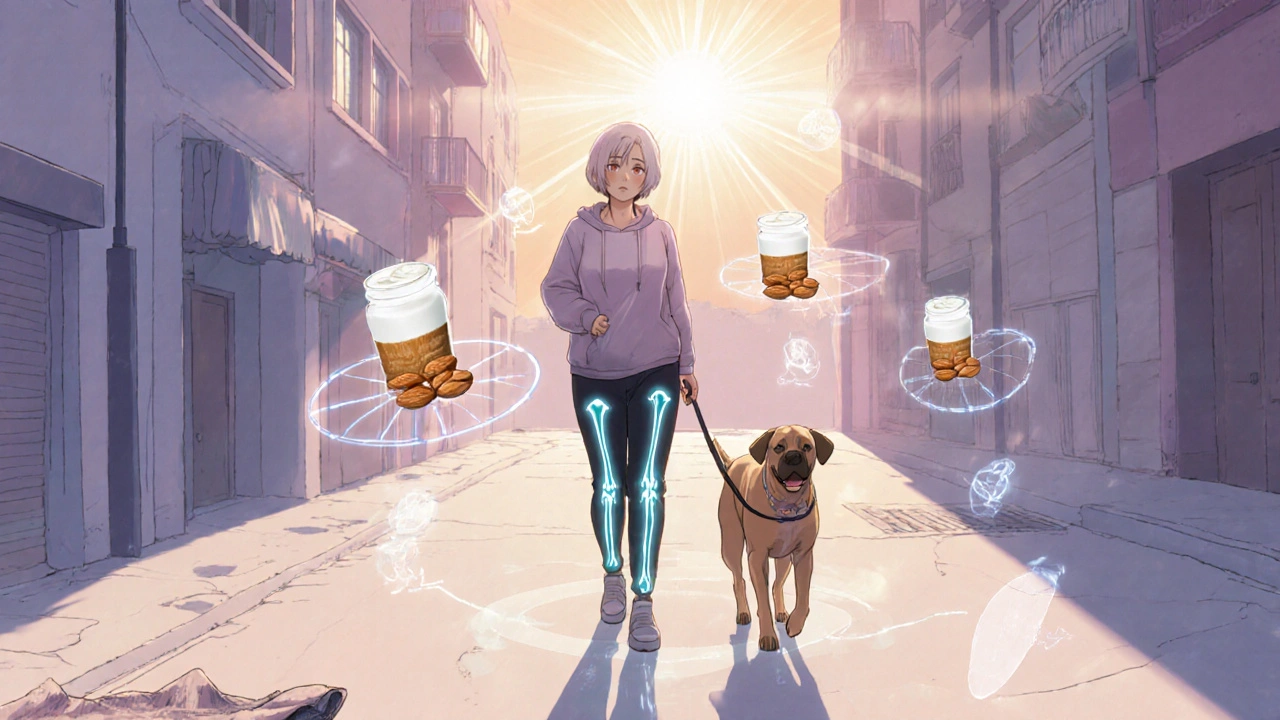Osteoporosis Risk: What Increases It and How to Reduce It
When we talk about osteoporosis risk, the likelihood of developing weakened bones that break easily. Also known as bone density loss, it’s not just something that happens to older people—it’s often the quiet result of long-term habits and hidden medication effects. Many assume it’s just about getting older, but the real story is more complex. Things like long-term use of proton pump inhibitors, common acid reflux drugs that can interfere with calcium absorption, or even oral corticosteroids, used for asthma and autoimmune conditions but known to speed up bone loss, quietly raise your risk. These aren’t rare side effects—they’re well-documented in real-world use, not just clinical trials.
Your body needs more than just calcium to keep bones strong. vitamin D, the nutrient that helps your body absorb calcium is just as critical. People who stay indoors, live in northern climates, or use sunscreen constantly often have low levels without realizing it. And it’s not just diet—lack of movement, smoking, and heavy alcohol use all chip away at bone density over time. Even some natural remedies and supplements, like certain herbs or unregulated products, can mess with hormone balance or nutrient absorption in ways that hurt bone health. The problem? Most people don’t connect their daily choices to bone strength until a fall leads to a fracture.
What makes this even trickier is that osteoporosis risk doesn’t show symptoms until it’s too late. No pain. No warning. Just a broken hip or spine after a minor stumble. That’s why knowing what’s pushing your risk up matters more than ever. Whether it’s your meds, your diet, or your activity level, small changes can make a big difference. Below, you’ll find real-world insights from people who’ve dealt with these issues—how certain drugs affect bones, what alternatives exist, and how to spot hidden dangers before they cost you your mobility.

Osteoporosis Risk: How to Stop Bone Density Loss and Prevent Fractures
Osteoporosis silently weakens bones, leading to fractures. Learn the real risk factors, what actually builds bone strength, and how to prevent breaks - with practical, science-backed steps you can start today.
